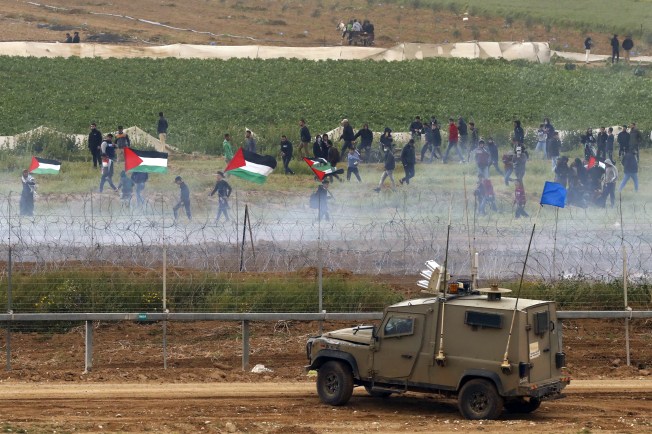In an era of global protest, France and Israel stand out for use of dangerous ammunition
Please see the original article here.
With the world gripped in a historic wave of unrest, journalists in no fewer than 65 countries – about a third of the world – have been attacked covering protests since 2015, according to a report I authored for a U.N. agency that was published today.
One thing that stood out during my research for the report Safety of Journalists Covering Protests: Preserving Freedom of the Press During Times of Turmoil, published by the United Nations Educational, Scientific and Cultural Organization, or UNESCO – was the use of dangerous munitions to suppress demonstrations.
Security forces in France and Israel, in particular, have deployed specific tools to devastating effect on the safety of the press covering protests.
French-invented “flash balls” have been used by riot police in the country since before the “yellow vest” protests began in 2018 over rising fuel prices and other economic grievances. They are made of rubber or condensed foam. While the original flash balls emitted a flash, the ones in use today do not. They travel at a higher velocity than other non-lethal projectiles like rubber bullets or pepper balls. A recent model of flash ball gun, known as the LBD40, fires 40mm projectiles traveling at speeds of up to 100 meters (328 feet) per second.
In December 2018, French authorities fired flash balls at reporters covering “yellow vest” protests, as CPJ documented at the time, citing news reports. According to CPJ’s research, several journalists were injured, including Boris Kharlamoff, a journalist for the audio press agency A2PRL, who said he was hit in the side even though he showed a press badge, and Liberation reporter Nicolas Descottes, who was struck in the face.
Multiple phone calls for comment to the French embassy in Washington, D.C. were not returned.
In the Occupied Palestinian Territory, another harsh weapon, the “butterfly bullet” was used by the Israel Defense Forces in response to Palestinian protests in 2018-2019, according to Al Jazeera, which cited testimony from medics. During those protests, known as the Great March of Return, Palestinians demanded to return to their historic homelands inside Israel, and for Israel to lift its blockade of the Gaza Strip.

While butterfly bullets come in different forms and calibers, the most damaging are live ammunition or rounds with metal casings designed to expand and fan out upon impact, causing maximum injury to flesh and bone. Marie-Elisabeth Ingres, the former head of Doctors Without Borders in the Occupied Palestinian Territory, described seeing injuries among Gaza protesters “where the bullet has literally destroyed tissue after having pulverized the bone.”
In August 2018, at least four Palestinian journalists were injured by gunfire and shrapnel, including from live “butterfly” rounds covering protests in Gaza, as CPJ documented at the time, citing news reports. During the same series of protests, photojournalist Yaser Murtaja with the Gaza-based Ain Media agency and journalist Ahmad Abu Hussein who was reporting for Voice of the People radio, were shot by Israeli forces in separate incidents and both died from their wounds, as CPJ documented. In both cases, the journalists were clearly identified as members of the press. It’s unclear what kind of munition the IDF used in those two shootings.
In a statement on its website, the IDF denied that it used expanding bullets against Gaza protesters. Such munitions, also known as “dumdum” rounds, have been outlawed in war since the Hague Declaration concerning Expanding Bullets of 1899. However, the treaty does not apply to situations where no war has been declared. A spokesperson for the Israeli embassy in Washington, D.C. did not return a request for comment sent via email.
According to my review of attacks against the press, Israel is unusual in its use of live ammunition on protesters. Flash balls have shown up in countries outside of France; in Spain, riot police under the regional government in Basque Country used the ammunition to quell protests as late as at least 2012, before their use was discontinued, the BBC reported.

